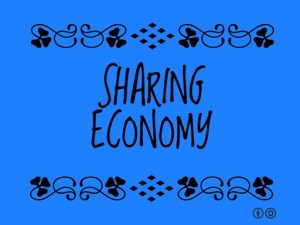Research suggests younger generations value experiences over possessions, and prefer the idea of being able to access something – a car, bike, designer dress – whenever they want, rather than owning the thing outright.
Sharing economy businesses are banking on most people still wanting to live a greener lifestyle in spite of Covid-19.
.
Whether it’s renting a car or an electric tool or clothes, the sharing economy is under a lot of pressure, as reported in the i-newspaper:
.
 Sharing economy: Coronavirus outbreak making consumers more cautious about sharing Ubers and items with strangers
Sharing economy: Coronavirus outbreak making consumers more cautious about sharing Ubers and items with strangers
Will fears of Covid-19 be enough to kill off the sharing economy before it really got going? Madeleine Cuff and Katie Grant investigate
Would you jump in a car that had been used by two strangers in the last four hours? Would you go and stay in someone else’s house for the weekend? Would you borrow a t-shirt or dress from someone you have never met?
Before Covid-19 hit, for many people the answer to that question would have been yes.
Research suggests younger generations value experiences over possessions, and prefer the idea of being able to access something – a car, bike, designer dress – whenever they want, rather than owning the thing outright.
That sentiment has fuelled the growth in the ‘sharing economy’, a burgeoning cohort of businesses and social ventures that allow people to rent, swap and share goods and services. Some of the most successful start-ups in recent years – the likes of Uber and Airbnb – have their roots in this movement.
But Covid-19 has thrown a huge spanner in the works. It is not just government restrictions on travel that has been a blow. The virus has injected caution into consumers. People are now wary of sharing cars and apartments, of touching things a lot of other people have touched…
That is bad news for the environment. The sharing economy has long been championed as a way to curb the polluting excesses of consumerism, says Libby Peake of the think tank Green Alliance. Manufacturing products sucks energy and resources, so each car, bike or power drill that is bought leaves behind a “trail of waste”, she tells i. “The sharing economy allows for much better use of resources,” she explains…
Sharing economy businesses are banking on most people still wanting to live a greener lifestyle in spite of Covid-19. Zipcar talks of people “re-evaluating” old routines and pursuing more “sustainable and eco-conscious” lifestyles post-pandemic. But the last few months have brought to the surface deep-seated hygiene fears of a life where access trumps ownership. Allaying those concerns will be central to getting the sharing economy moving once more.